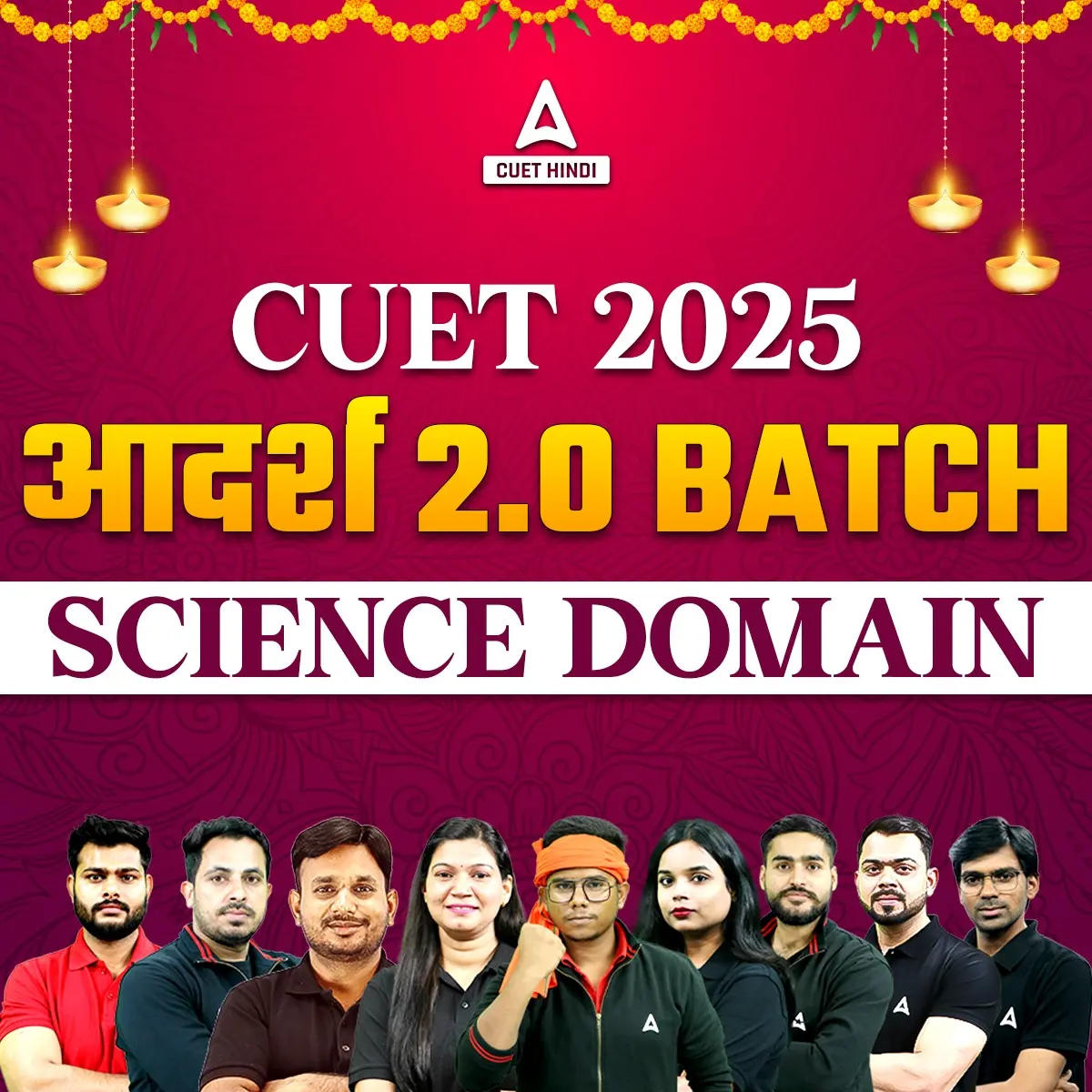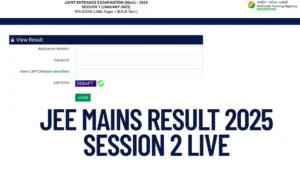Table of Contents
The Dual degree programs have been in place for some time in India but with the introduction of the National Education Policy (NEP), this concept is going to be implemented at a large scale. Dual degree programs, which were implemented as part of the National Education Policy (NEP) 2020, are causing a significant change in the higher education system of India. The dual degree programs in India offers the opportunity to students to pursue two degrees at the same time.
Dual Degree Programs in India
The latest regulations by the University Grants Commission (UGC) will enable students to undertake two degrees concurrently through the dual degrees program. The program was first introduced in 2012 and changed in 2016, but the Indian government authorized dual degrees in April 2022. The dual degree programs in India encourage students to pursue two degrees at the same time in order to promote a diverse educational experience and bring Indian institutions in line with worldwide standards. Nevertheless, as they become more popular, dual degrees prompt important questions about their advantages and obstacles.
Dual Degree Programs in India: Good or Bad
The education experts are divided on the new implementation of the dual degree programs in India. It is however important to mention that many foreign universities in the USA offers dual degree programs. So, it all boils down to the preference and goal of a student. As per the senior level education expert in the industry, Dual degrees allow students to combine in-depth technical skills with a broader understanding of subjects like humanities or economics.
The education expert further states that this promotes comprehensive skills that improve job prospects and stimulate creativity. An engineering student studying economics can better grasp tech-driven economic models, which can lead to new interdisciplinary job opportunities. Around the world, it is typical to have dual degrees, and numerous significant advancements occur where different fields meet. The expert states that it is important to make sure that both students and universities are adequately ready for this model.
Advantages of Dual Degree Programs in India
Some of the advantages that dual degree programs in India will provide has been listed below.
Improved employability: “Employers appreciate a variety of skills.” “Having dual degrees prepares students for specialized positions that demand expertise in multiple areas,” the expert acknowledges.
Young students frequently lack clarity on their future career choices, allowing them the freedom to explore their interests. Dual degrees provide them with the opportunity to investigate different interests without being limited to just one field,” he clarifies.
International Importance: “Dual degrees are prevalent worldwide and aid Indian universities in fostering partnerships and attracting students from other countries,” he explains.
According to the expert, interdisciplinary education promotes critical thinking and creativity, which are crucial for success in both professional and research spheres.
Disadvantages of Dual Degree Programs in India
Even though double majors offer benefits, they also present difficulties which are stated below.
- The expert warns that students may become overwhelmed balancing two degrees without proper guidance in academic overload.
- Resource limitations: According to the expert, dual degree programs may lead to university seats being filled up by one student taking up two slots, thus reducing opportunities for others.
- Warning about the dilution of learning, he cautions that without careful management, there is a risk of decreasing depth within individual disciplines.
Dual Degree Courses After 12th
Some of the top dual degree programs after completing 12th grade are BBA LLB, BSc LLB, BCom + LLB, BBA + MBA, BA Hons + BA Journalism, BTech + MS, B.Pharm + M.Pharm, BE + ME, and BCom + BBE. These programs last from 5 to 6 years and consist of both undergraduate and postgraduate coursework. Below we have talked about some of the top dual degree programs that can be pursued immediately after completing the 12th grade board exams.
Dual Degree Programs in India: BBA LLB
The BBA LLB program is a fusion of business administration and law, spanning over a 5-year duration. It includes subjects like contracts, corporate law, and managerial economics. The curriculum integrates arts and legal studies in the course. Students gain hands-on experience through internship programs. The program provides comprehensive understanding of law and legal processes. Obtaining this degree presents various possibilities for the future.
Eligibility Criteria
- The candidates need to achieve a score of at least 45-50% in the 12th board exam in order to pass.
- Some law colleges mandate CLAT scores for admission.
Dual Degree Courses in India: BSc LLB
The program of BSc LLB covers a period of 5 years and combines studies in both science and law to earn a bachelor’s degree. The topics discussed range from environmental law to forensic science and constitutional studies. BSc LLB is essentially a combined program that integrates law studies. The subjects studied include Biotechnology, Chemistry, Electronic Devices, Tax Law, Civil Law, Labour Law, Criminal Law, Corporate Law, Administrative Law, and Patent Law.
Eligibility Requirements
- Candidates must receive at least 45–50% of the possible points in the 12th board exam.
- Few law schools require CLAT scores.
Dual Degree Programs: BCom LLB
BCom + LLB is a combination of the two courses – Bcom and LLB, creating a dual course. This course combines business with legal studies. The course usually includes subjects related to business and legal matters. Subjects covered include contract law, business law, corporate law, taxes, financial accounting, and commercial transactions. Internships and court visits are included in the BCom LLB curriculum.
Eligibility Criteria
- Candidates need to successfully complete the 12th board exam in commerce.
- The candidates need to pass the entrance exam.
Dual Degree Courses- BBA + MBA
The BBA + MBA dual degree course spans over a period of 5 years and integrates both the undergraduate and postgraduate Business Administration syllabus. This is a dual degree program that can be taken right after completing the 12th board exam. The course provides hands-on experience in the actual field of business administration through workshops and internships.
Eligibility Requirements
- Students must have passed his/her class 12th board exam from the science or commerce stream
- Students must pass the entrance exam held for admission in the course
Dual Degree Programs in India- BA Hons + BA Journalism
The dual degree program consists of BA Honours and BA Journalism. The course combines the teachings from both degrees. The curriculum incorporates the examination of humanities in addition to hands-on journalism skills. The curriculum of the course includes media ethics, literature, and sociology. The course includes both internship and fieldwork.
Eligibility
Candidates must achieve at least 60% marks in the 12th board exam in order to appear for the entrance exams for admission to this dual degree program.
Dual Degree Programs in India: BTech + MS
A 5-year dual degree program combining BTech and MS is available after completing 12th grade. It combines engineering expertise with advanced research and academic exploration in areas like data science and artificial intelligence. The course involves both projects and internships. Students graduating with a dual BTech and MS degree acquire a skill set that encompasses knowledge from both disciplines.
Eligibility Criteria
Candidates are required to achieve a minimum of 60% marks in Maths, physics, and chemistry in their 12th exam. Apart from that, students will have to pass the national or state level entrance exams like JEE, BITSAT, KCET, etc.
Dual Degree Programs in India- BE + ME
BE + ME is a dual degree program available after completing 12th grade, combining a Bachelor of Engineering and Master of Engineering. This is a dual degree program available after the 12th board exam. This course integrates the bachelor’s and master’s degrees in engineering. The field of engineering encompasses various specializations like electrical, civil, and computer engineering.
Eligibility Requirements
- The candidates need to achieve a minimum of 60% marks in physics, chemistry, and maths in order to pass the 12th board examination.
- The candidates have to pass the entrance test.
Dual Degree Programs in India: B.Pharm + M.Pharm
B.Pharm combined with M.Pharm is a popular choice among students as a dual degree course after completing 12th. This course integrates pharmacy syllabi from both undergraduate and postgraduate levels. The course includes topics on pharmaceutical science, clinical pharmacy, and drug formulation. The modules center on chemistry, human biology, physiology, and pharmacology. This double degree program offers a wide variety of opportunities in the pharmaceutical field.
Eligibility Requirements
- In order to be eligible, candidates need to achieve a minimum of 60% marks in physics, chemistry, and mathematics, as well as physics, biology, and chemistry in their 12th board examination.
- Candidates need to be a minimum of 17 years of age.
- Candidates must pass the entrance exam conducted by various universities for admission
Dual Degree Programs in India: BCom + BBE
BCom + BBE is a dual degree program that spans over a period of 5 years. This course merges the disciplines of commerce and business studies into one unified program. Subjects covered in the course curriculum consist of financial accounting, organisational behaviour, business statistics, marketing management, microeconomics, and macroeconomics.
Eligibility Requirements
- Candidates need to successfully complete the 12th board exam focusing on commerce.
- Candidates are required to pass the entrance test.
| Related Posts | |
| MBA vs PGDM | CUET PG Courses 2025 |
| Integrated MBA | MBA Specializations in India |





 JEE Mains Result 2025 Session 2 Live: Sc...
JEE Mains Result 2025 Session 2 Live: Sc...
 UP, MP, CBSE Board Result 2025 Live Upda...
UP, MP, CBSE Board Result 2025 Live Upda...
 [Live] CUET UG Date Sheet 2025 @cuet.nta...
[Live] CUET UG Date Sheet 2025 @cuet.nta...










